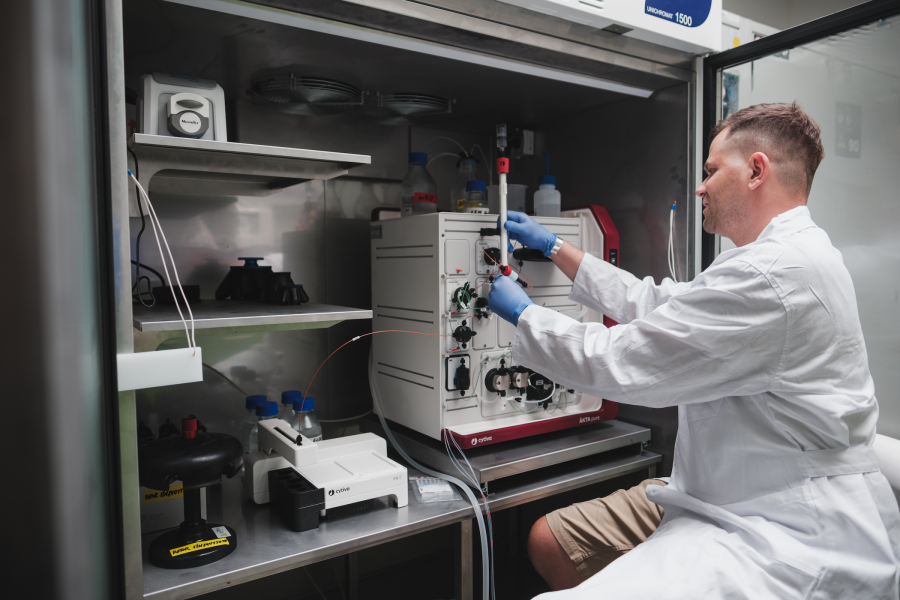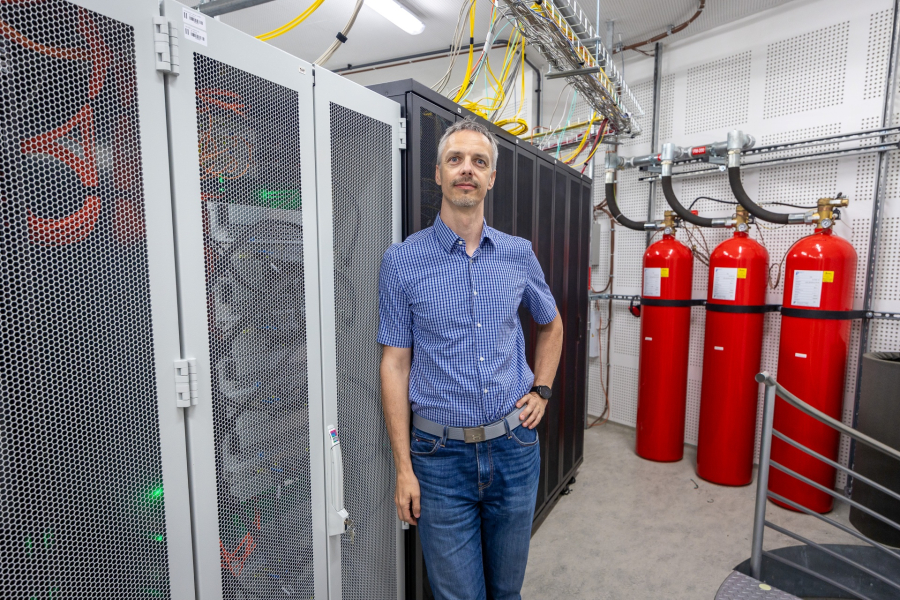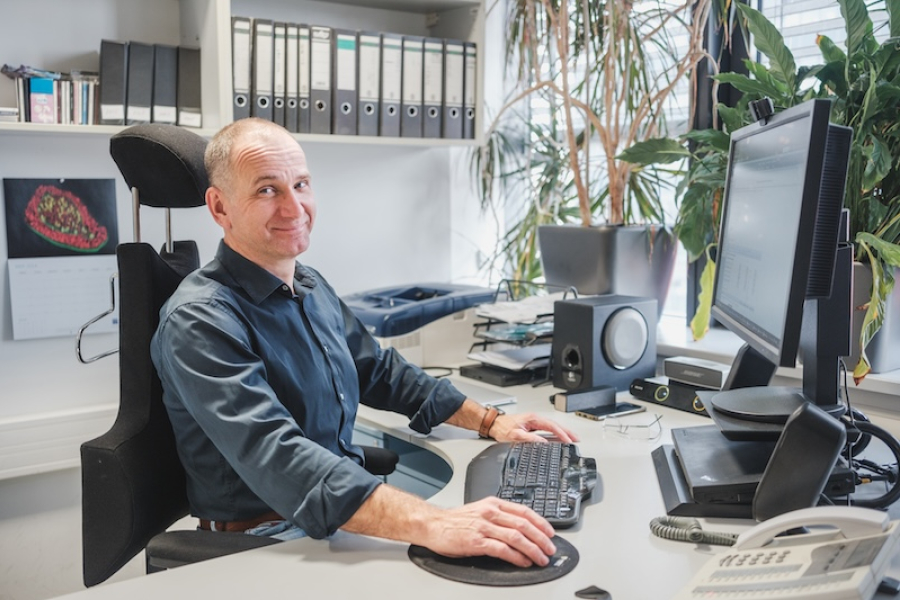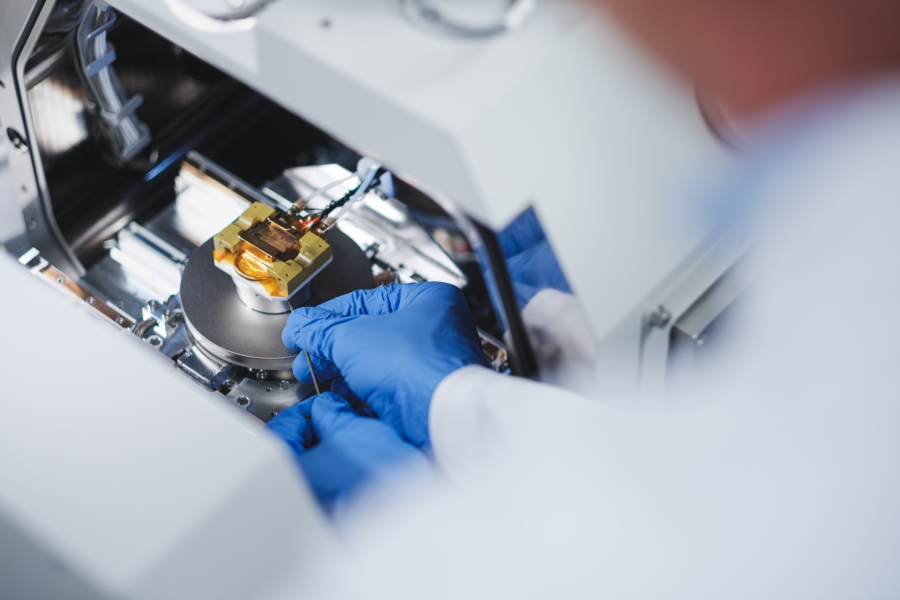
Ever wonder how your cells build proteins? We explore the molecular machines (ribosomes) that keep us alive and investigate what happens when they fail, or how viruses hijack them. Using cutting-edge Cryo-EM, we freeze these tiny factories in action to see them at atomic resolution. If you are ready to dive into structural biology and help solve ribosomal mysteries, our team at CEITEC is the place for you! Contact: petr.tesina@ceitec.muni.cz

We aim to understand how viruses replicate by studying the structure of viral particles and their interactions with infected cells, which viruses exploit to produce their offspring. We focus primarily on: 1) Picornaviruses – a large group of viruses that cause a range of diseases, from the common cold to encephalitis. 2) Bee viruses, which lead to colony collapse. 3) Bacteriophages, which can be used as an alternative to antibiotics to treat infections caused by Staphylococcus aureus and Pseudomonas aeruginosa. In our group, you will get hands-on experience with molecular biology methods, light-sheet fluorescence microscopy, cryo-electron microscopy, and tomography. You will learn gene engineering techniques, how to work with bacteria and tissue cultures, and how to grow and purify viruses in BSL2 and BSL3 laboratories. Contact: pavel.plevka@ceitec.muni.cz

In our laboratory, we study new forms of platinum and ruthenium compounds with anticancer activity. We build on metal-based drugs already used in medicine, which we further modify chemically, and then investigate their combinations with systems that contain cavities in their molecular structure, allowing the drug to be encapsulated. The resulting system does not affect healthy cells during its activity in the human body, offering the potential to reduce the unwanted side effects associated with conventional cancer treatments. Contact: radek.marek@ceitec.muni.cz

Get ready to study proteins, the working molecules that perform a diverse range of functions for the cell. In the Tripsianes group, we combine biochemistry, biophysics and structural biology to produce and characterise the components of the WNT signalling pathway, which is important mainly in the development and regeneration of organisms. What do these proteins look like? Do they change appearance? Are they stiff or moving all the time? With whom do they stick around? Come and join us to test hypotheses and find answers that can advance knowledge in the WNT field. Contact: kostas.tripsianes@ceitec.muni.cz

We are developing new peptides/proteins that can be used to treat infections, including those caused by antibiotic-resistant bacteria. Using computer simulations, we are revealing mechanisms how peptides can kill bacteria such as formation of holes in bacterial membranes or by carrying drugs. Based on the results, we are designing new peptides that we are experimentally validating in our lab, including toxicity and antibacterial activity. Contact: Robert.Vacha@ceitec.muni.cz

We study how translation processes take place in bacteria and humans, and how the assembly of functional ribosomes is regulated. To this end, we use structural biology methods, especially cryo-electron microscopy, to determine the structures of ribosomal complexes at various stages of maturation. We pay special attention to the factors that influence ribosome folding. We also use cryo-electron tomography to directly investigate, within human cells, how ribosomes (i.e. the translation process) are affected by viral infections. Our research focuses primarily on poxviruses, which cause smallpox. Contact: gabriel.demo@ceitec.muni.cz

Seed production of crops is essential for the production of many foodstuffs. Our research seeks to understand aspects that influence seed production. We are interested in how plants respond to different environmental conditions in which they grow and how these changes in conditions translate into changes in regulation at the cellular and molecular levels. We are trying to identify genes that could help improve plant production at high temperatures. In particular, we work with the model plant Arabidopsis thaliana and the agriculturally important oilseed rape, but we also use tomatoes or almond trees. Contact: katerina.macova@ceitec.muni.cz

In our laboratory, we develop proteomic analysis methods using mass spectrometry, focusing especially on the analysis of post-translational protein modifications such as histone acetylation and methylation, glycosylation, and phosphorylation. We offer a wide range of proteomic applications to collaborators in the Czech Republic and abroad, helping to push the boundaries of knowledge about the molecular basis of cellular processes and to support the goals of applied research. We welcome new colleagues interested in this exciting scientific discipline. Contact: zbynek.zdrahal@ceitec.muni.cz

Compared to animals, plants are masters of change. They are capable of completely redefining the developmental programs of differentiated cells, which can lead, for example, to the formation of roots from a detached leaf. This allows them to adapt to constantly changing conditions and survive even extreme damage. The key players responsible for this remarkable developmental plasticity are plant hormones. In our research group, we study how hormones are recognized, how their signals are integrated with other signals, and which genes are regulated by hormones.

In our research group, we use the cutting-edge method of in-cell NMR spectroscopy, which allows us to study the structure and behaviour of molecules directly within living cells or in 3D models of human tissues. Our focus includes investigating how drugs interact with their target molecules in the intracellular environment and how this knowledge can be applied to develop more effective and precisely targeted therapies. We also monitor structural changes in molecules in response to alterations in the cellular environment associated with various physiological and pathological conditions. For us, in-cell NMR truly serves as a window into the cell – it helps us understand how molecules actually function where it matters most. Our activities also include the development of chemical antibodies designed to selectively influence cellular (patho)physiological processes. Contact: silvie.trantirkova@ceitec.muni.cz

Our lab studies regulation of gene expression, i.e. how genes are transcribed into mRNA. Two proteins, cyclin-dependent kinases 11 (CDK11) and 12 (CDK12) play crucial roles in this process and they are often altered in various forms of cancers. We apply up-to-date methods of molecular biology, biochemistry, chemical biology and bioinformatics to understand molecular mechanisms of these proteins in normal and cancer cells. We also utilize this knowledge in design of novel anti-tumor strategies. Contact: dalibor.blazek@ceitec.muni.cz

We are studying leukemias and lymphomas arising from B cells of the immune system. Using in vitro models, next generation sequencing and samples from patients treated at the neighboring University Hospital, we decipher the molecular mechanisms regulating the onset and progression of these diseases and develop treatment strategies and diagnostic tools (several patents). For example, we have shown that non-coding RNAs play an essential role in leukemias/lymphomas and described novel mechanisms of therapy resistance. Contact: marek.mraz@ceitec.muni.cz

We focus on two major hematologic malignancies, i.e. a malignant tumour disease – chronic lymphocytic leukemia and acute myeloid leukemia, whose therapies often fail, desiring better treatments. We are using the „molecular scissors“ CRISPR/Cas9 to generate new cell models carrying patient mutations, characterize mechanisms of resistance to current therapies or identify new targets for therapy. We are testing a large collection of drugs to discover new effective therapies and use modern genomic approaches to reveal the mechanisms. Contact: michal.smida@ceitec.muni.cz

In our field, knowledge of computer science and mathematics will come in handy, as you’ll be able to apply it to molecular medicine projects with a direct impact on patient health. There’s nothing better than diving into the labyrinth of the genetic code and using informatics to analyze data obtained through next-generation sequencing (NGS). With us, you can combine your interest in data and life sciences and gain experience in the rapidly evolving field of bioinformatics. Contact: vojtech.bystry@ceitec.muni.cz

We focus on two major hematological malignancies – chronic lymphocytic leukemia and acute myeloid leukemia – both of which are often resistant to treatment. We use CRISPR-Cas9 genome editing to create new cellular models carrying patient-specific mutations. These models help us better understand why some patients do not respond to existing therapies and to explore new possibilities for future treatments. We test a large collection of drugs and apply modern genomic approaches to discover new effective therapies and to unravel the underlying cellular mechanisms. Contact: jan.pribyl@ceitec.muni.cz